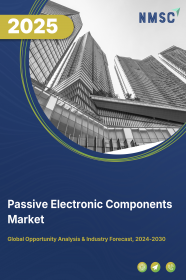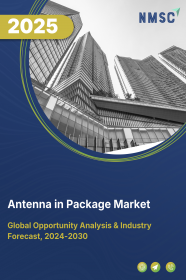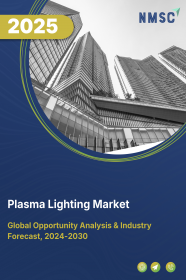
Passive Electronic Components Market by Type (Capacitors, Resistors, Inductors,Transformers, Diodes and Ferrites & Cores), by Materials (Ceramic-Based Components, Metal Film and Wire-Wound Components, Plastic and Polymer-Based Components and Magnetic Materials), by Technology (Surface-Mount Technology (SMT) Components, Through-Hole Technology (THT) Components and Thin Film and Thick Film Technology) and Others- Global Opportunity Analysis and Industry Forecast 2023-2030
US Tariff Impact on Passive Electronic Components Market
Trump Tariffs Are Reshaping Global Business
Market Definition
The Passive Electronic Components Market size was valued at 32.7 billion in 2022 and is predicted to reach 48.7 billion by 2030 with a CAGR of 5.8% from 2023-2030. Passive electronic components are electronic components that do not require a power source to function. These components are used to control the flow of electricity in a circuit and to shape the electrical signal in a desired way. They are considered passive because they do not actively generate electricity, but rather modify the flow of electricity that is already present in a circuit.
Passive electronic components are used to provide specific functions such as resistance, capacitance, and inductance. They are known for their durability, reliability, and low cost, making them popular choices in many electronic systems. They are easy to integrate into a wide range of circuits. Passive electronic components are manufactured by using a variety of materials and are available in a wide range of sizes and shapes to suit different requirements.
Market Dynamics and Trends
The demand for the passive electronic components market is increasing due to the rising adoption of electronics in various industries, including automotive, healthcare, and consumer electronics. As these industries continue to develop and advance, the demand for passive components such as resistors, capacitors, and inductors increases. The miniaturization and integration of electronic devices, such as smartphones and wearable devices, also drive demand for smaller and more efficient passive components.
Moreover, the increasing use of wireless technology in a wide range of devices and applications is also boosting the growth of the passive electronic components market. As more devices and systems rely on wireless communication, the demand for passive components such as antennas and RF filters increases. Therefore, with the growing adoption of wireless technology and the increasing demand for faster and more reliable communication is boosting the growth of the market.
Additionally, the development of Internet of Things (IoT) and 5G networks is further accelerating the growth of the passive electronic components market. Both the IoT and 5G networks rely on a wide range of electronic devices and components along with large number of low-power and low-cost components that can be integrated into a wide range of devices including passive electronic components.
However, the increasing availability of substitute materials and technologies such as semiconductors and transistors is the major factor restraining the growth of the passive electronic components market. On the other hand, the introduction of graphene is expected to create ample growth opportunities for the market in the future. Graphene is a material made of a single layer of carbon atoms that is extremely conductive and has a very high surface area. It is being researched for use in passive electronic components such as resistors, capacitors, and inductors.
The global passive electronic components market is segmented on the basis of type, application, and geography. Based on type, the market is classified into capacitors, resistors, inductors, and others. Capacitors are further subdivided into, ceramic capacitors, tantalum capacitors, aluminum electrolytic capacitors, paper, and plastic film capacitors, supercapacitors/EDLCs. Resistors are further subdivided into, surface-mounted chips, network, wirewound, film/oxide/foil, carbon. Inductor are further subdivided into, power and frequency. Based on the application, the market is segmented into aerospace & defense, medical electronics, information technology, automotive, industrial, and others. Geographical breakdown and analysis of each of the aforesaid classifications include regions comprising of North America, Europe, Asia-Pacific, and RoW.
Asia Pacific dominates the global passive electronic component market trend and is potently expected to remain dominant in the market throughout the forecast period. This is attributed to the rising adoption of smartphones, laptops, and other consumer electronics in countries such as China and India. China is the largest smart device manufacturer and a major contributor to this demand as it has a significant share in the global consumer electronics market.
Additionally, the rapid rise of the telecommunications industry in the Asia Pacific region, particularly in countries including China and India, is further boosting the growth of the passive electronic components market. Passive electronic components are widely used in communication systems such as base stations, routers, and servers, and further their growing adoption in these systems is driving the market growth. For instance, in October 2022, the government of India launched 5G rollout across the country in view of its digital transformation program.
On the other hand, North America shows substantial growth in the global passive electronic component market. This is due to the large number of data centers and cloud computing infrastructure in the North America region, which require various types of passive electronic components such as capacitors, resistors, and inductors. According to the United States International Trade Commission as of 2021, out of 8000 global data center the United States has 2701 data centers.
Moreover, the presence of major market players such as Bourns, Inc. and TDK Corporation are adopting various strategies including product launches is further accelerating the growth of the market. For instance, in August 2022, Bourns, Inc. launched 600-V/650-V discrete products co-packaged with a fast recovery diode (FRD). The five new Model BID Series discrete devices include a positive temperature coefficient that helps increase device longevity and reduce power requirements in high voltage and high current designs.
Also, in 2022, TDK Corporation announced the construction of a new production building on the premises of the Kitakami factory. This construction is aimed to further increase the production volume of MLCCs and to satisfy growing demand from customers.
Various market players operating in the passive electronic component market include Delta Electronics Inc., Panasonic Corporation, TDK Corporation, Vishay Intertechnology Inc, AVX Corporation, Samsung Electro-Mechanics, Nippon Chemi-Con Corporation, Walsin Technology, Mouser Electronics, Inc., Digikey Inc., Texas, Instruments Incorporated, Arrow Electronics, Inc., Octopart, TTI, Inc., Jameco. These market players are adopting various strategies such as innovation and collaboration to maintain their dominance in the global passive electronic component market.
For instance, in June 2022, TDK Corporation developed the new TFM201208BLE series of inductors optimized for space-constrained smartphone power circuits. These are available in 0.24, 0.33 and 0.47 µH versions.
Also, in May 2022, Vishay Inter technology Inc. introduced a new series of AEC-Q200 qualified, chassis-mount wire-wound resistors targeted at the growing electric vehicle (EV) market. These resistors offer high reliability to the devices, featuring a wholly welded and molded construction for total environmental protection and an operating temperature range of -55 °C to +250 °C.
Moreover, in April 2022, TDK Corporation established a joint venture between Amperex Technology Limited and Contemporary Amperex Technology Co., Limited. that engages in the business of rechargeable battery for automobiles and other applications under “Announcement on Business Alliance and Establishment of Joint Venture with CATL” on April 28, 2021.
Key Benefits
-
The report provides quantitative analysis and estimations of the passive electronic components market from 2023 to 2030, which assists in identifying the prevailing market opportunities.
-
The study comprises a deep dive analysis of the passive electronic components market including the current and future trends to depict prevalent investment pockets in the market.
-
Information related to key drivers, restraints, and opportunities and their impact on the passive electronic components market is provided in the report.
-
Competitive analysis of the players, along with their market share is provided in the report.
-
SWOT analysis and Porters Five Forces model is elaborated in the study.
-
Value chain analysis in the market study provides a clear picture of roles of stakeholders.
Key Market Segments
By Component Type
-
Capacitors
-
Ceramic Capacitors
-
Aluminum Electrolytic Capacitors
-
Tantalum Capacitors
-
Film Capacitors
-
Supercapacitors
-
-
Resistors
-
Fixed Resistors
-
Variable Resistors (Potentiometers)
-
Current Sense Resistors
-
-
Inductors
-
Fixed Inductors
-
Variable Inductors
-
Toroidal Inductors
-
-
Transformers
-
Power Transformers
-
Signal Transformers
-
Pulse Transformers
-
-
Diodes
-
Rectifier Diodes
-
Zener Diodes
-
Schottky Diodes
-
- Ferrites and Cores
By Materials
-
Ceramic-Based Components
-
Metal Film and Wire-Wound Components
-
Plastic and Polymer-Based Components
-
Magnetic Materials
By Technology
-
Surface-Mount Technology (SMT) Components
-
Through-Hole Technology (THT) Components
-
Thin Film and Thick Film Technology
By Application
-
Consumer Electronics
-
Automotive
-
Industrial
-
Telecommunication
-
Medical Devices
-
Aerospace and Defense
-
Others
By End-User
-
OEMs
-
Electronics Manufacturing Services (EMS) Providers
By Region
-
North America
-
The U.S.
-
Canada
-
Mexico
-
-
Europe
-
The UK
-
Germany
-
France
-
Italy
-
Spain
-
Denmark
-
Netherlands
-
Finland
-
Sweden
-
Norway
-
Russia
-
Rest of Europe
-
-
Asia Pacific
-
China
-
Japan
-
India
-
South Korea
-
Australia
-
Indonesia
-
Singapore
-
Taiwan
-
Thailand
-
Rest of Asia Pacific
-
-
RoW
-
Latin America
-
Middle East
-
Africa
-
Key Players:
-
Delta Electronics Inc.
-
Panasonic Corporation
-
TDK Corporation
-
Vishay Intertechnology Inc
-
AVX Corporation
-
Samsung Electro-Mechanics
-
Nippon Chemi-Con Corporation
-
Walsin Technology
-
Mouser Electronics, Inc.
-
Digikey Inc.
-
Texas Instruments Incorporated
-
Arrow Electronics, Inc.
-
Octopart
-
TTI, Inc.
-
Jameco
REPORT SCOPE AND SEGMENTATION:
|
Parameters |
Details |
|
Market Size in 2022 |
USD 32.7 Billion |
|
Revenue Forecast in 2030 |
USD 48.7 Billion |
|
Growth Rate |
CAGR of 5.8% from 2023 to 2030 |
|
Analysis Period |
2022–2030 |
|
Base Year Considered |
2022 |
|
Forecast Period |
2023–2030 |
|
Market Size Estimation |
Billion (USD) |
|
Growth Factors |
The rising adoption of electronics in various industries, including automotive, healthcare, and consumer electronics. Increasing use of wireless technology in a wide range of devices and applications. The development of Internet of Things (IoT) and 5G networks. |
|
Countries Covered |
28 |
|
Companies Profiled |
10 |
|
Market Share |
Available for 10 companies |
|
Customization Scope |
Free customization (equivalent to up to 80 working hours of analysts) after purchase. Addition or alteration to country, regional, and segment scope. |
|
Pricing and Purchase Options |
Avail customized purchase options to meet your exact research needs. |

















 Speak to Our Analyst
Speak to Our Analyst




















